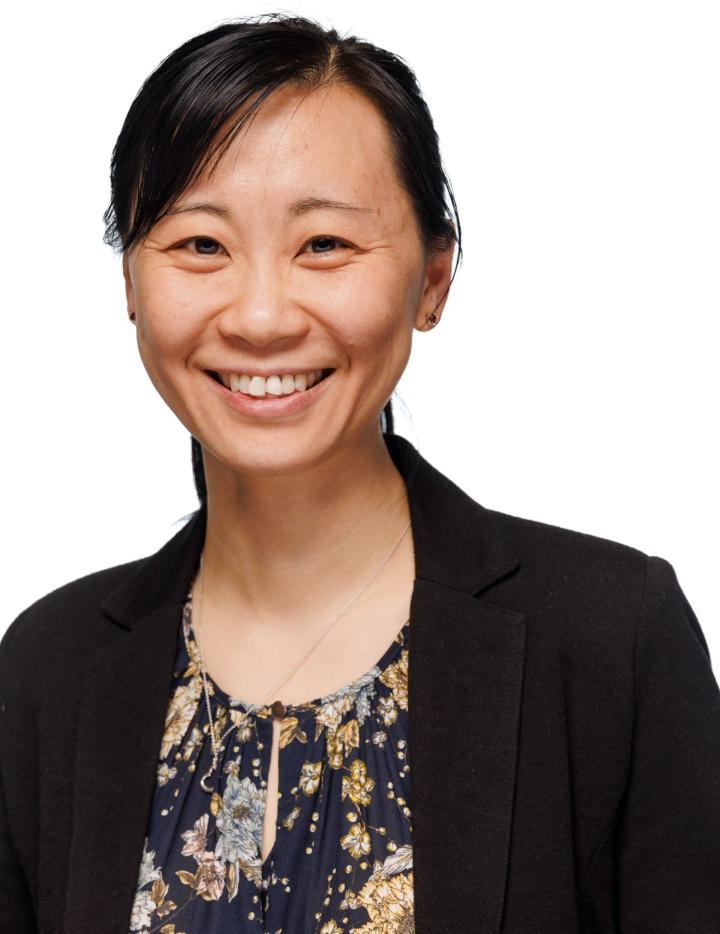Veuillez noter que les horaires ci-dessous sont indiqués en EDT.
JFO 2024 est une journée d'apprentissage bilingue (anglais/français) accréditée par le CCEPP qui se tiendra en ligne le samedi 2 novembre 2024 de 10 h à 19 h (HAE).
Vous souhaitez approfondir vos connaissances en oncologie ou vous lancer dans ce secteur ? Alors, retrouvez-nous en ligne pour une journée de formation complète dans la langue de votre choix !
Click here for the English version.
Saturday
November 2, 2024
Cette session est uniquement disponible en anglais.
Presentation Summary
This symposium will provide attendees with a complete, foundational knowledge base for the treatment and management of small-cell lung cancer (SCLC). The program will start with a review of epidemiology, pathophysiology, prognosis, and staging for SCLC, followed by a discussion on the evolving therapeutic landscape. While patient outcomes with existing agents have traditionally been poor, the program will highlight new immunotherapy options for these patients, including tarlatamab, a bispecific T-cell engager (TCE), with a focus on the pharmacy team’s involvement in monitoring and management strategies for patients receiving this treatment.
Learning objectives
At the end of this program, participants will be able to:
1. Describe the pathophysiology, epidemiology, etiology and prognosis of small-cell lung cancer (SCLC), including an overview of the current staging and treatment landscape.
2. Evaluate the role of immunotherapy and assess the positioning of emerging treatments, such as bispecific T-cell engagers (TCEs) including tarlatamab, within the evolving therapeutic landscape for SCLC.
3. Evaluate key safety considerations in the treatment of SCLC, including monitoring and management strategies of SCLC therapies.
Sponsorisé par Amgen.
Résumé de la session
Les pharmaciens jouent un rôle primordial dans le traitement des patients et sont souvent directement en contact avec des patients en proie à une grande détresse. Certains patients manifestent de vives émotions menant à des interactions délicates ou hostiles au moment de prodiguer leurs soins. Cette session abordera les défis psychosociaux couramment vécus par les patients au cours de leur diagnostic et de leur traitement, les stratégies à adopter et les pratiques de communication à proscrire lors de conversations délicates.
Objectifs d'apprentissage
1. Répertorier les émotions les plus fréquemment éprouvées par les patients atteints d'une maladie.
2. Recenser les perspectives des patients et leurs réactions individuelles au cours d'interactions délicates.
3. Discussion des stratégies de communication visant à aborder les conversations délicates à l'aide d'un discours empathique.
4. Évaluation pratique des émotions et des stratégies à travers des mises en situation de patient.
Résumé de la session
Le Meilleur schéma thérapeutique possible (plus qu'une simple liste de médicaments) est un élément crucial dans le domaine de l'oncologie ambulatoire. Nous passerons en revue le guide de l'ISMP sur les techniques d'entretien pour le MSTP et vous communiquerons une feuille de travail pertinente utilisée pour mettre à jour les informations et s'assurer que tous les participants comprennent la nature d'un MSTP. Les MSTP permettent d'identifier les risques potentiels tels que les interactions médicamenteuses, les problèmes de conformité, les allergies, etc. avant le début d'un traitement anticancéreux. En collaboration avec nos pharmaciens en oncologie ambulatoire, nous aborderons certaines interactions et problèmes courants résolus grâce à un MSTP. Dans le cadre de notre sondage non officiel auprès d'une douzaine de cliniques d'oncologie ambulatoire en Ontario, nous avons demandé qui effectuait un MSTP et à quel moment. Nous présenterons nos résultats et débattrons des avantages et des inconvénients des différents professionnels de la santé qui mènent les MSTP au sein de leurs centres respectifs, sans oublier l'importance du moment choisi pour le faire.
Objectifs d'apprentissage
1. Revue du bilan comparatif des médicaments (BCM) et de son importance.
2. Analyse du rôle du meilleur schéma thérapeutique possible (MSTP) dans le processus de bilan comparatif des médicaments et des étapes à suivre.
3. Identifier les organismes chargés de promouvoir le bilan comparatif des médicaments et de fixer les normes en la matière.
4. Comprendre l'importance du MSTP dans le domaine de l'oncologie ambulatoire.
5. Identification des personnes chargées de mener un MSTP dans le domaine de l'oncologie ambulatoire et du moment opportun pour ce faire.
Résumé de la session
Cette présentation vise à fournir aux nouveaux pharmaciens en oncologie et aux assistants techniques en pharmacie une compréhension fondamentale du cancer du sein.
Tout d’abord, une introduction portera sur les aspects épidémiologiques, les signes et symptômes, ainsi que les facteurs de risque associés à cette maladie. Les recommandations actuelles pour le dépistage du cancer du sein seront également abordées, afin de mieux préparer les pharmaciens à leur rôle dans la prévention et le diagnostic précoce.
Ensuite, une brève description des différents types de cancers du sein sera présentée, suivie d’un survol des principales modalités de traitement, incluant la chirurgie, la radiothérapie, la chimiothérapie, l’hormonothérapie, la thérapie ciblée, et enfin l’immunothérapie. Cette section offrira une vue d’ensemble des options thérapeutiques disponibles.
Plus en détail, les traitements pharmacologiques couramment utilisés pour gérer le cancer du sein à ses stades précoce et avancé seront abordés. Cet aspect est crucial pour les pharmaciens, qui jouent un rôle clé dans l’optimisation des traitements, le suivi des patients et la gestion des interactions médicamenteuses.
La présentation se terminera par une discussion sur le rôle du pharmacien et des assistants techniques en pharmacie dans l’éducation des patients, le suivi des traitements et la gestion des effets secondaires des agents pharmacologiques. Les pharmaciens en oncologie sont des acteurs clés dans l’accompagnement des patients tout au long de leur parcours de soins, et cette présentation vise à renforcer leurs compétences dans ces domaines.
A la fin de la formation, les participants seront mieux préparés à prendre en charge les patients atteints de cancer du sein, en leur offrant des soins pharmaceutiques efficaces et bien informés.
Objectifs d'apprentissage
1. Connaître l’épidémiologie, les signes & symptômes, les facteurs de risque du cancer du sein ainsi que les recommandations actuelles pour le dépistage.
2. Distinguer les différents types de cancers du sein.
3. Réviser les différentes modalités de traitements employées dans le cancer du sein.
4. Décrire les principaux traitements pharmacologiques couramment utilisés dans le cancer du sein de stade précoce et avancé.
5. Discuter du rôle du pharmacien et des assistants techniques en pharmacie dans l’éducation, le suivi et la gestion des effets secondaires des agents pharmacologiques.
Résumé de la session
Les interactions médicamenteuses en oncologie peuvent inclure des interactions pharmacocinétiques (PK) et pharmacodynamiques (PD) avec les anticancéreux oraux, la chimiothérapie et les anticorps monoclonaux qui exigent une évaluation et une gestion par les pharmaciens en oncologie afin de soigner au mieux les patients atteints d'un cancer. Les inhibiteurs des points de contrôle immunitaire (ICI) sont des anticorps monoclonaux qui renforcent la cytotoxicité des lymphocytes T contre les cellules cancéreuses malignes. Ces inhibiteurs ont été introduits dans de nombreuses directives de traitement des hémopathies et des tumeurs solides cancéreuses. Les ICI ne sont pas associés à des interactions pharmacocinétiques traditionnelles en matière d'absorption, de distribution, de métabolisme, de transport ou d'élimination, mais certaines interactions pharmacodynamiques ont été observées dans le cadre de recherches observationnelles tant prospectives que rétrospectives. Les pharmaciens en oncologie doivent être conscients des DDI pharmacodynamiques associées aux ICI, étant donné que des données rétrospectives mettent en corrélation ces interactions avec des résultats cliniques moins favorables chez certaines populations de patients. Cette session vise à mieux faire connaître les DDI pharmacodynamiques liées aux ICI identifiés dans les publications et à proposer des stratégies concrètes aux pharmaciens pour qu'ils abordent ces DDI avec les patients afin de leur offrir des soins optimaux en cancérologie.
Objectifs d'apprentissage
1. Se rappeler les interactions médicamenteuses (DDI) pharmacodynamiques (PD) cliniquement pertinentes avec les inhibiteurs des points de contrôle immunitaire (ICI) figurant dans les publications.
2. Examiner les publications sur les DDI pharmacodynamiques des ICI et en évaluer les implications sur les conséquences relatives au cancer chez les populations concernées.
3. Mettre en œuvre des méthodes concrètes d'évaluation et de prise en charge des interactions pharmacodynamiques avec les ICI.
Résumé de la session
Cette session présentera un aperçu des principaux tests diagnostiques pour le traitement des tumeurs solides et des cancers du sang. Les participants découvriront pourquoi les tests sont importants pour le choix des médicaments et les raisons pour lesquelles ces tests sont prescrits.
Objectifs d'apprentissage
1. Être en mesure d'identifier les tests diagnostiques les plus fréquemment utilisés pour les cancers hématologiques et la signification de leurs résultats.
2. Expliquer la signification des termes dMMR/MSI-H, pMMR, MSI-L et MSS.
3. Énumérer les tests diagnostiques les plus courants pour le cancer du sein.
4. Comprendre les tests diagnostiques du cancer du poumon les plus courants.
Résumé de la session
Cette session est une introduction à la leucémie myélogène chronique qui aborde le diagnostic, les options de traitement et la gestion des effets indésirables qui en découlent. Cette session portera sur les options de traitement les plus courantes et sur la manière dont les professionnels de la pharmacie peuvent accompagner au mieux leurs patients tout au long de leur traitement.
Objectifs d'apprentissage
1. Présentation de la physiopathologie, des symptômes et du diagnostic de la leucémie myéloïde chronique (LMC).
2. Résumé des options de traitement en vigueur pour la LMC.
3. Comment choisir l'agent et la dose les plus adaptés à votre patient.
4. Être en mesure de surveiller et de combattre les effets indésirables du traitement.
Résumé de la session
La santé sexuelle et l'intimité sont des aspects intégrants de la condition humaine. Il existe d'innombrables façons dont un diagnostic de cancer peut avoir un impact sur la santé sexuelle et l'intimité. Des changements dans la santé sexuelle après un cancer sont fréquents, touchant des patients de tous âges, et ne sont pas limités à un type de cancer particulier. Ces changements peuvent se produire à tout moment au cours de la trajectoire de la maladie, depuis le diagnostic jusqu'à la survie, ainsi que pendant les soins en fin de vie.
Au cours de cette présentation, un aperçu des changements potentiels dans la santé sexuelle pouvant survenir suite à un diagnostic de cancer sera présenté. Des stratégies et des options thérapeutiques (pharmacologiques et non pharmacologiques) pour aider à gérer les préoccupations liées à la santé sexuelle et préserver l'intimité seront discutées. Un résumé des ressources disponibles pour les pharmaciens oncologues ainsi que pour les patients et leurs partenaires sera fourni.
Objectifs d'apprentissage
Au terme de cette présentation, les participants devraient être en mesure de :
1. Expliquer l'impact possible du cancer et des traitements sur la santé sexuelle et l'intimité.
2. Aborder les stratégies pouvant aider à renforcer la santé sexuelle et l'intimité après avoir reçu un diagnostic de cancer.
3. Identifier les ressources disponibles pour les pharmaciens afin de répondre aux préoccupations des patients en matière de santé sexuelle et d'intimité.
Cette session est uniquement disponible en anglais.
Colorectal cancer (CRC) is a leading cause of cancer-related mortality and morbidity worldwide. Initial clinical presentation as metastatic CRC (mCRC) occurs in approximately 20% of patients and up to 50% of will develop metastases. Curative resection is only possible in a small proportion of metastatic patients with limited disease. Although several factors have contributed to improved clinical outcomes, a key development has been the introduction of novel biologic therapies targeting either epidermal growth factor signaling or angiogenesis. As such, Bevacizumab plays a significant role in the treatment of mCRC since it has demonstrated improved overall survival, and the advent of biosimilars improved the access to the treatment. Moreover, taking into consideration the localization of the tumor (left-sided vs. right-sided) and biomarkers such RAS and BRAF mutational status and the analysis of microsatellite instability (MSI) has further improved clinical outcomes by personalizing the treatment strategies.
This session will discuss the position of bevacizumab in the current clinical practice for the treatment of mCRC, how it is used depending on the treatment strategy based on the biological markers, and what combinations may work the best for the patients.
Learning objectives
At the end of this symposium, participants will be able to:
1. Have a better understanding of:
• The current place of bevacizumab in 1st line and 2nd line of therapy for the treatment of mCRC in the current clinical practice;
• The role of biomarkers in treatment choice.
2. Acquire an up-to-date view on the most recent combinations used with bevacizumab for the treatment of mCRC.
Sponsorisé par Celltrion.









